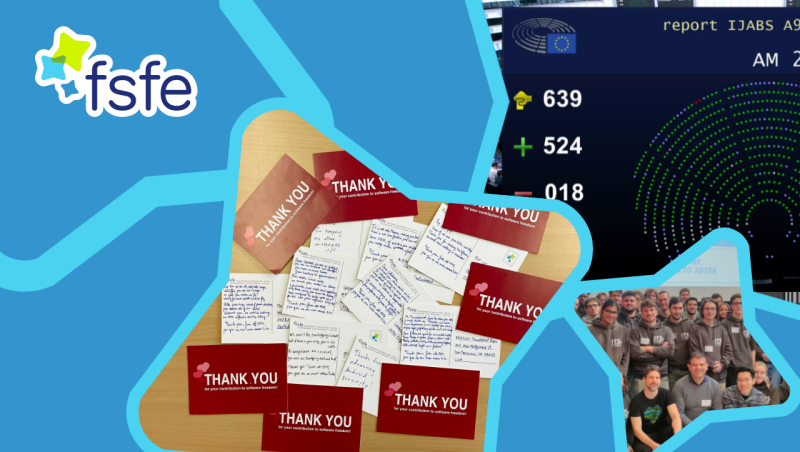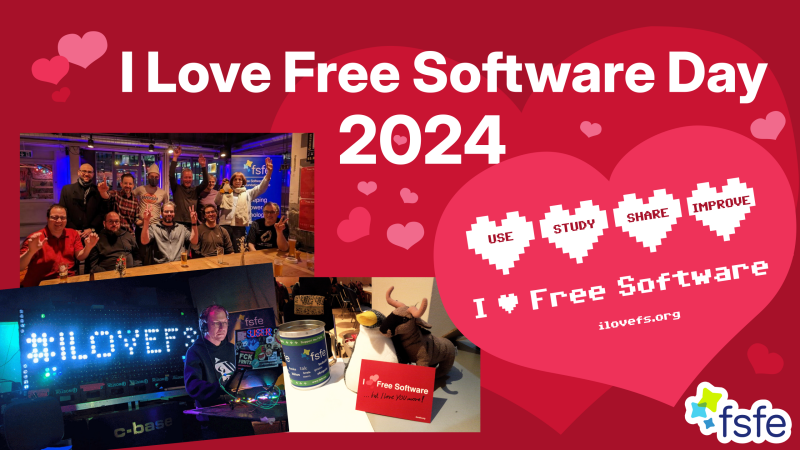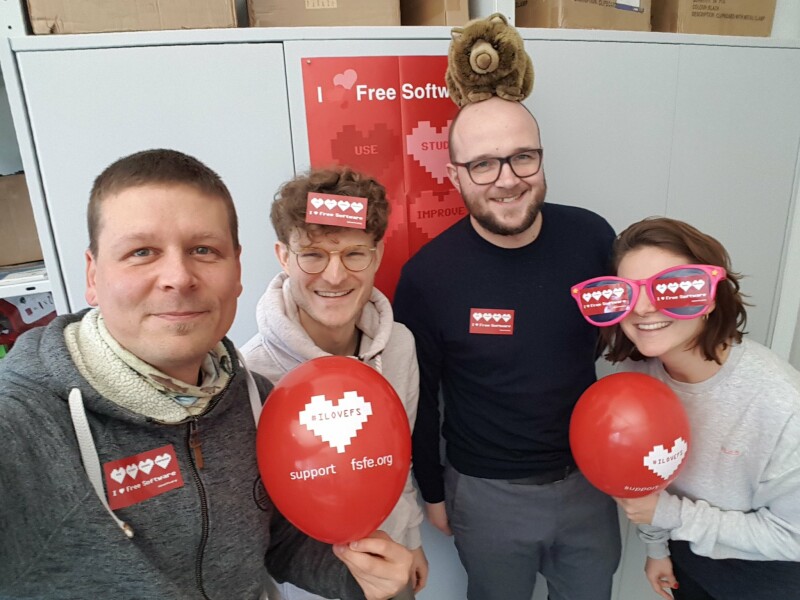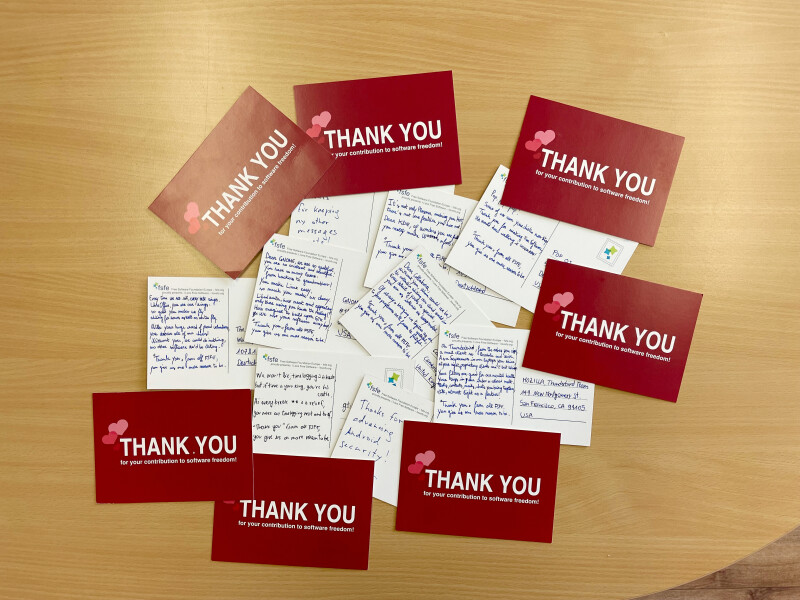FOSDEM 2024 was a blast!
vendredi 1 mars 2024 à 00:00FOSDEM 2024 was a blast!
At the beginning of February, FSFE volunteers and staffers went back to Brussels to take part in FOSDEM 2024 with a booth and talks. While for some of us this has become an awesome yearly experience, it was the first time for others. Thanks to everyone who came to FOSDEM, visited our booth for a nice chat, and joined us during our social events!
For many members of our community, FOSDEM marks the beginning of the annual Free Software conferences. It is also one of the largest conferences on Software Freedom, so as a Free Software enthusiast it is one of the places to be.
While most of our staff and volunteers have marked the first weekend of February in their calendars for years, some FSFE members attended for the first time. We asked one of them, Tommi, a Free Software enthusiast and FSFE intern, about his first FOSDEM experience.
“When I was asked to go to FOSDEM, my answer was of course! So, a couple of weeks ago, I caught a train to Brussels and took part in the first FOSDEM of my life. It won’t be the last one.
It is hard to explain how incredible an experience it was to attend the conference. What struck me the most was to finally give a face and an identity to usernames contributing to Free Software. Up to FOSDEM, I personally met only a few people directly involved in the universe of open technologies that I have been following in the past few years. FOSDEM gave me the opportunity to finally have a face-to-face conversation with a lot of developers and members of the Free Software community, and I expressed my gratitude to them.
Both by standing at our booth and by wandering around, I could not help but feel surrounded by like-minded people who believe in the importance of Software Freedom, and more broadly in technology developed by the people for the people. I chatted face-to-face with developers and maintainers of projects whose existence literally changed my life, and all this happened in a self-organized and volunteer-led environment, making it even more interesting and captivating. Of course, there was also time to attend really interesting talks, and I had the chance to listen to my colleagues in front of an audience. It was also great to have the chance to meet a lot of FSFE volunteers and engage in interesting discussions with them during our social events.”
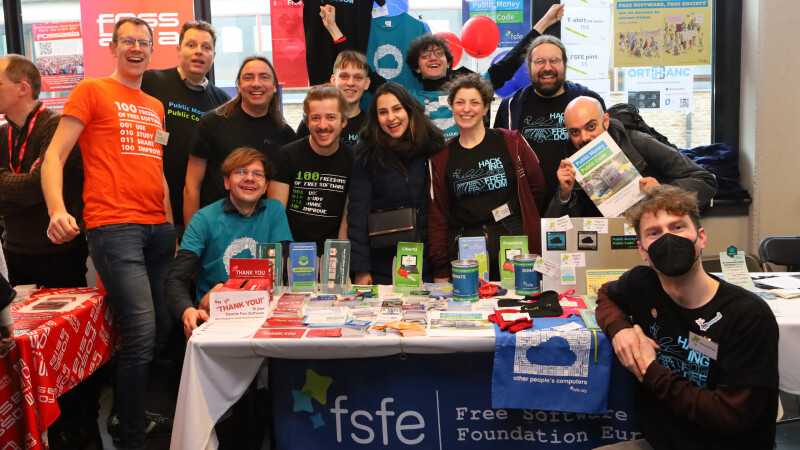 Our team and volunteers at our FOSDEM 2024 booth!
Our team and volunteers at our FOSDEM 2024 booth!
For this year, we had a booth at FOSDEM with promotion material and merchandising. Thanks to everyone who gave us a hand there!
If you missed FOSDEM or didn’t have time to attend all of our sessions, don’t worry! Have a look at the devrooms we co-organized this year and took part in, so that you can learn something new, deepen your knowledge, and improve your Free Software skills.
Legal and Policy issues Devroom CRA & PLD: Free Software in the European legislative landscape, the first of four parts of the EU policy devroom Codes Bound by Ethics: The Rising Tide of Non-Free Software Licenses in AI ecosystems Presenting Youth Hacking 4 Freedom, FSFE programming competition for European teenagers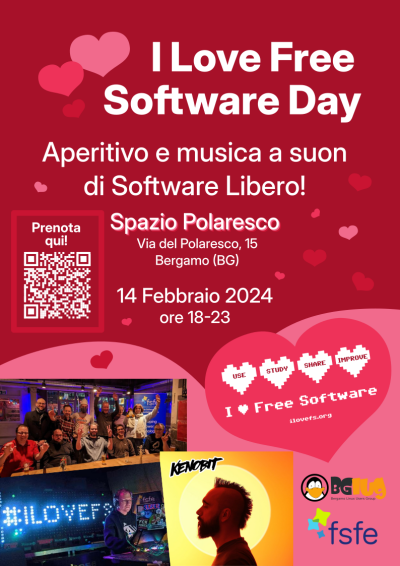
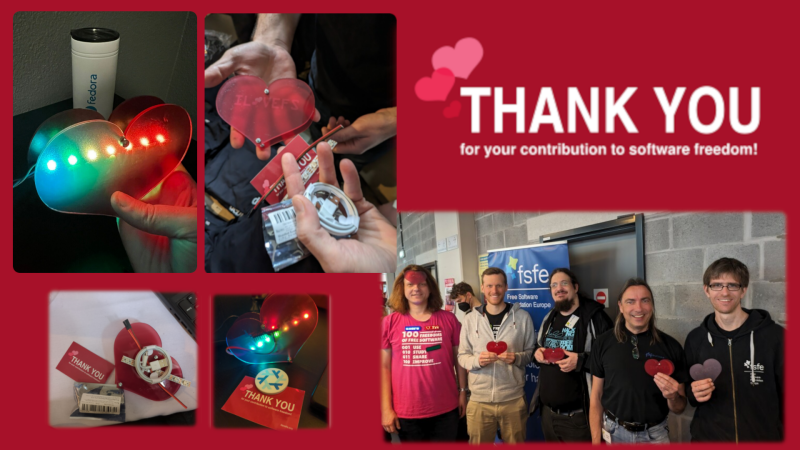
 "'I Love Free Software Day' celebration in Zurich, Switzerland"
"'I Love Free Software Day' celebration in Zurich, Switzerland"
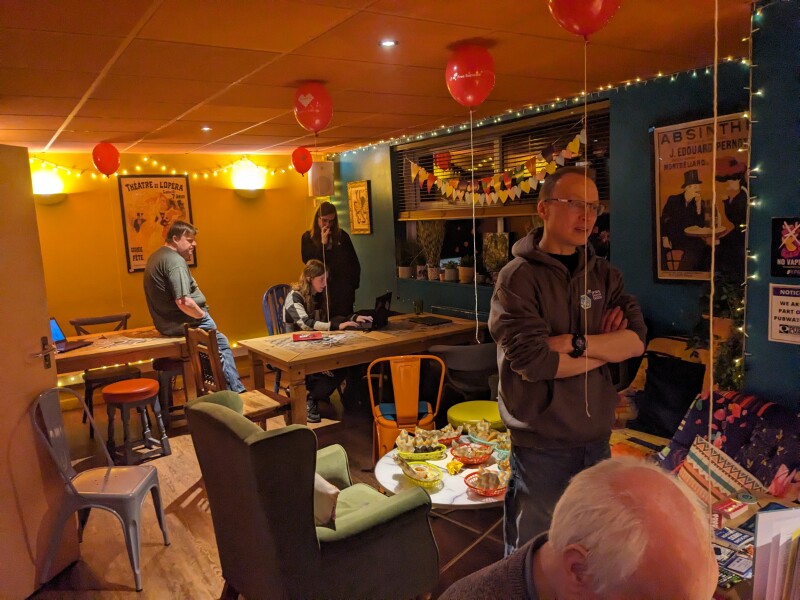 "'I Love Free Software Day' celebration in Potteries, England"
"'I Love Free Software Day' celebration in Potteries, England"
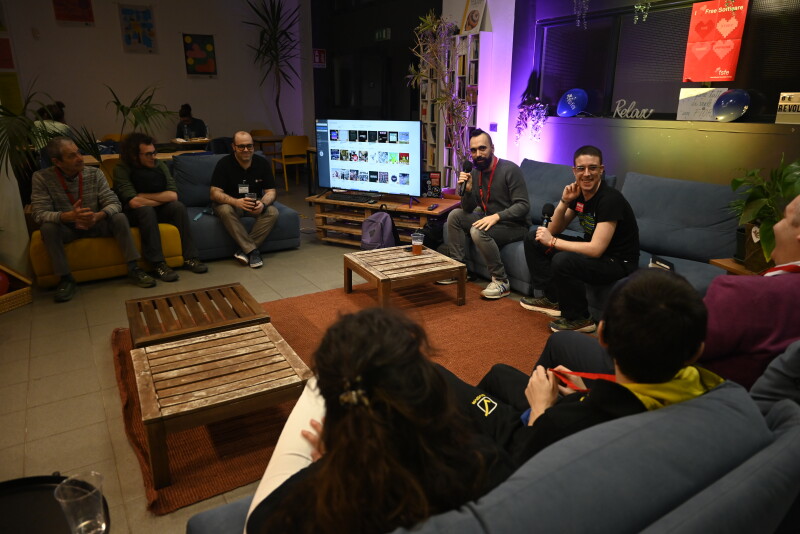 "'I Love Free Software Day' celebration in Bergamo, Italy"
"'I Love Free Software Day' celebration in Bergamo, Italy"
